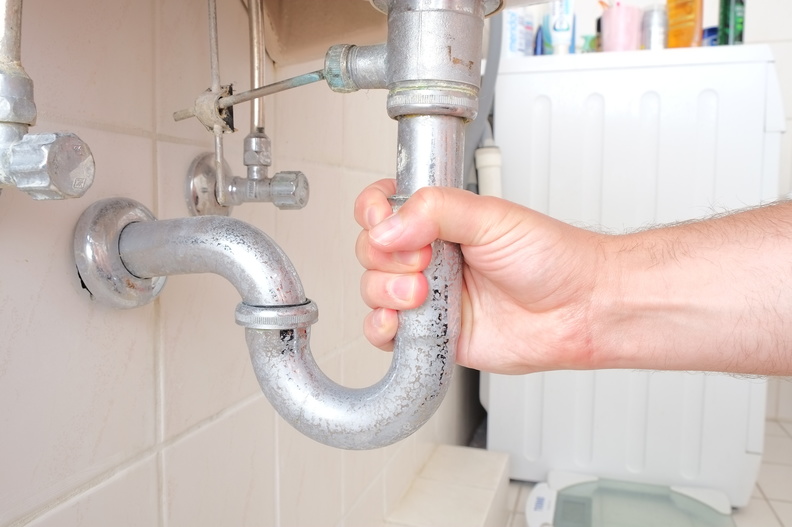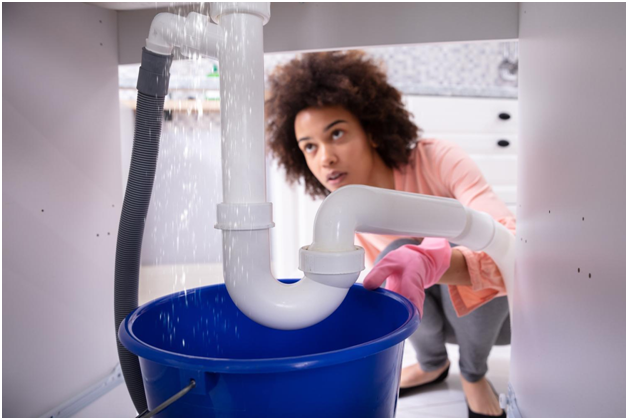The writer is making a number of good points on the subject of Expert Tips for Emergency Plumbing Repairs overall in this post followed below.

Plumbing emergency situations can strike at any moment, causing anxiety and possible damage to your home. Whether it's a ruptured pipe, a clogged up drain, or a dripping faucet, understanding just how to handle the scenario up until a professional plumbing technician gets here can save you from more problems. This write-up offers necessary emergency pipes tips to assist you minimize damage and restore control throughout a plumbing crisis.
Shut off the Water Supply
The primary step in any kind of plumbing emergency is to shut off the supply of water. For local concerns, such as a leaking tap or commode, switch off the valve near the component. When it comes to a significant leakage or burst pipe, locate your home's main water shut-off valve and turn it off instantly. Understanding the location of these valves in advance can save valuable time during an emergency.
Shut Off Your Water Heater
In certain emergency situations, such as a ruptured pipeline, it's smart to shut down your hot water heater. This protects against getting too hot or damages to the device when water quits streaming. Shut off the power supply to the water heater (electric or gas) and allow it cool to prevent prospective dangers.
Temporarily Stop a Burst Pipe
A ruptured pipeline can cause considerable water damage in minutes. To mitigate the concern:
Call a professional plumbing professional promptly to resolve the trouble permanently.
Have an Emergency Situation Pipes Set
Prepare a fundamental pipes emergency kit to deal with small concerns efficiently. Your kit needs to consist of:
Having these devices handy can make a significant distinction in your ability to take care of emergencies.
Unclog Drains Pipes Safely.
A clogged up drain can be an irritating and unpleasant concern. Here's exactly how to tackle it:.
If these methods do not work, avoid utilizing too much force, as it may aggravate the clog.
Take Care Of Overflowing Toilets.
An overflowing bathroom can create immediate turmoil. Right here's what you need to do:.
Address Tiny Leakages with Momentary Repairs.
Small leakages can promptly come to be considerable issues if left unattended. Use these short-term fixes till professional aid arrives:.
While these solutions aren't permanent, they can aid minimize water loss and damage.
Take Care Of Frozen Pipeline Very Carefully.
In cooler climates, frozen pipelines are an usual emergency. If you believe a frozen pipeline:.
Know When to Call an Expert.
While quick fixes can aid briefly, particular plumbing problems call for prompt expert focus. Call a plumbing if:.
Without delay speaking to a specialist makes sure the concern is resolved appropriately and stops further complications.
Protect against Additional Damage.
Taking fast action to minimize damages can save you time and money in the future. Here's just how:.
Verdict.
Plumbing emergency situations can be frustrating, but with the appropriate understanding and devices, you can handle the scenario successfully until aid arrives. By switching off the water system, addressing tiny leaks, and making use of momentary fixes, you can reduce damages and keep your home safe. Bear in mind, these pointers are temporary remedies; always seek advice from a qualified plumbing to manage the origin of the issue. Prep work and quick reasoning are your best allies in any type of pipes emergency.
8 Helpful Tips for Managing Plumbing Emergencies at Home
If your plumbing system hasn’t failed once, wait for it because almost everyone has a story to tell. Sometimes, it could be simple emergencies such as a leaking pipe, a blocked cistern, or even a big burst pipe. In situations like this, you need to have some handy tips to save you some money and from possible damages.
Take care of minor issues early.
Sometimes, you could have avoided an emergency by taking proactive measures while it was still early. Some major plumbing emergencies can be a result of an ignored minor issue. We recommend that you have items like plumbing tapes and other related items. A plumbing tape can allow you to manage minor leaks before the plumber arrives.
Cut off the water supply.
This tip is essential in almost any type of leakage problem. For problems like minor leakages in the toilet or kitchen, turn off the supply that takes water to the affected pipes. If the leakage is a major pipe, you must shut off the supply valve to the entire building. This will help you avoid flooding your home and neighbors if you share a flat.
Know your plumbing system
Folks typically move into a new apartment without understanding the water supply around the building. This can prove disastrous if a water emergency arises and the plumber is far away. The previous tip will prove useless if you don’t practice this one. More importantly, know where your water shut-off valve is located – you’ll need that knowledge to prevent potential home floods.
Have some common handy tools
There are lots of plumbing emergencies that you can handle without hiring a plumber. That’s why you must keep some tools available always. Some tools that you can use to fix simple plumbing emergencies easily include plumbing tapes, screwdrivers, thread seal tapes, plungers, pliers, tape measures, and rubber gloves.
Insulate your pipes from cold
You’ll save yourself from many plumbing expenses if you protect your water pipes from the cold. This is because of the harmful effects that cold weather can have on your pipes. During winter, your pipes can burst from being overly expected to freezing temperatures. So, make sure insulators are there to keep the pipes working correctly.
Avoid practices that will clog your toilet.
Many people indulge in practices that can damage the plumbing system of the entire building. One of these is when they use their toilet to dispose-off garbage. They flush all kinds of things, such as paper towels, bandages, hairs, female sanitary products, etc., down the toilet. This will block your toilet in the long run, incurring unnecessary expenditures. Dump such waste in the trash instead.
Check your dials regularly.
Sometimes, there could be leakages in your home without noticing them in time. So, constantly monitor your water meter dial. If the dial is reading when there is nobody using water, this is an indicator that there is leaking. Check for leaks immediately. Call a plumber as soon as possible if you can’t find any.
https://www.constructionplacements.com/8-helpful-tips-for-managing-plumbing-emergencies-at-home/

I hope you enjoyed our part on Expert Tips for Emergency Plumbing Repairs. Thanks so much for taking the time to browse our short article. For those who enjoyed our article kindly do not forget to pass it around. Many thanks for going through it.
Get Offer